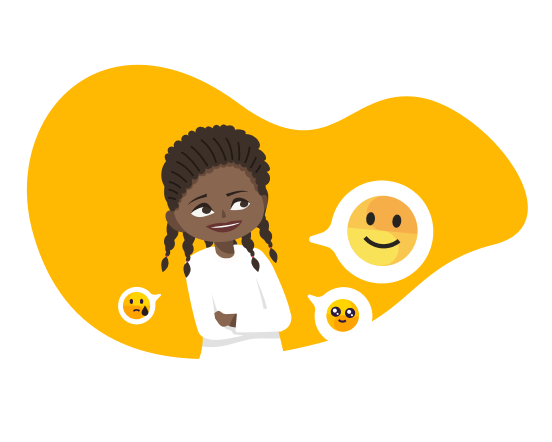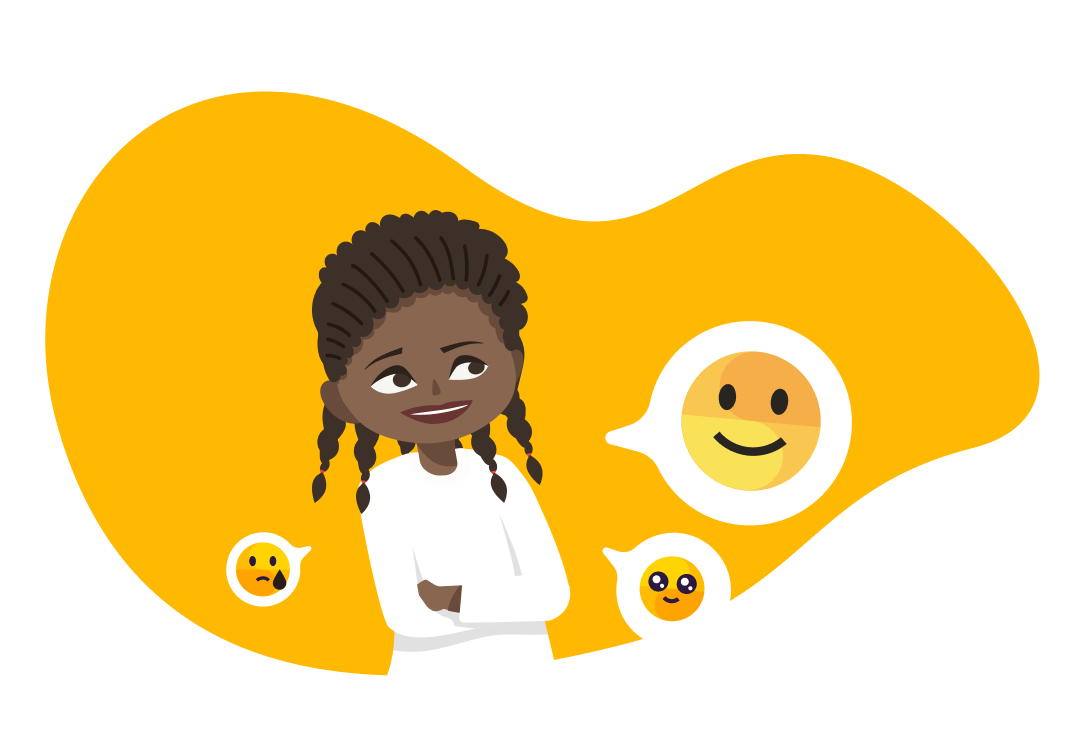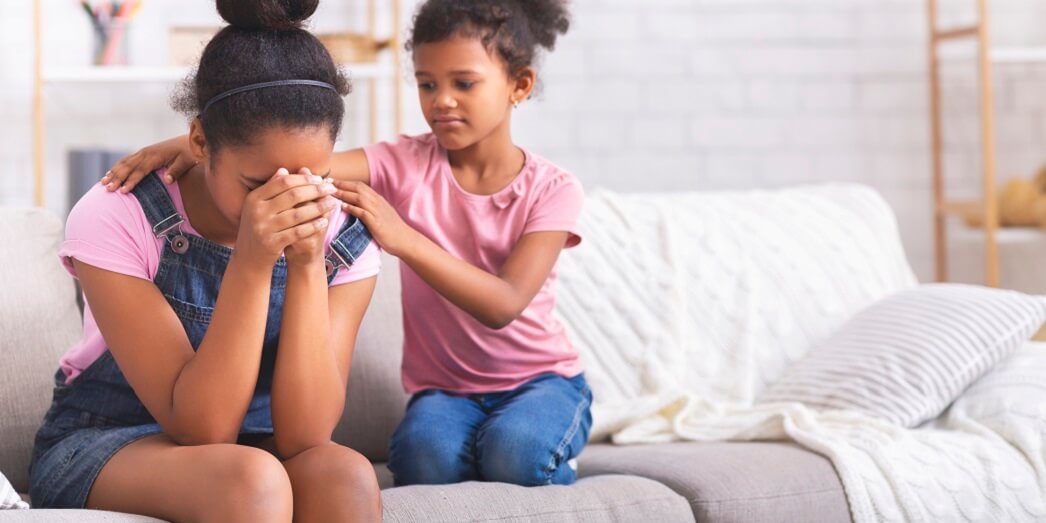
How to teach children empathy
Is empathy that important? Compared to good grades in school and success in sports, this quality may seem less valuable to parents. However, in today’s world, a child’s social-emotional development is no less important than the intellectual one. According to scientific studies, a lack of empathy affects cruelty, aggression and contributes to the development of narcissism in children and society altogether.
Though, the meaning of empathy is extremely broad. Some adults do not know exactly how empathy manifests itself. Others believe that it only means compassion or kindness. In this article, we attempt to clarify the nowadays popular concept of empathy. You will find out whether it is inborn or you can foster it with the right child-rearing practices.
We will explain how to create a healthy climate at home and what techniques to use to help develop a child’s emotional intelligence and social skills. Spoiler: if you want your kid to become a well-balanced, self-confident and caring individual who can build nurturing relationships with the surrounding people, you will need to start paying more attention to the role of empathy in your life.
What is empathy?
Originally, the word “empathy” was a purely scientific concept. Austrian psychoanalyst Sigmund Freund was one of the first to define this word referring to the psychoanalyst’s need to put himself in the patient’s shoes to better understand him.
Thanks to the growing interest in soft skills, our understanding of the importance of empathy and its role in communication and self-development have increased. It is often used as a synonym for sympathy or compassion, which is not quite right.
Empathy is the ability to read another person’s emotional state and relate it to your thoughts and actions. It should not be confused with compassion as it refers to a wide range of emotions regardless of their positive or negative connotations. While compassion represents the ability to show pity, empathy is more multidimensional.

Scientists believe that empathy has to do with mirror neurons in our brains. According to perception-action theory, empathy is part of the mirror mechanism. When we observe another person’s action, the same parts of our brain are excited as if we were feeling or acting ourselves.
Only an hour after birth, children can repeat facial movements and emotions that are shown to them. Babies of several months old are capable of understanding and distinguishing some of their mother’s facial expressions. That is why if you smile at a baby, she will smile back at you.
But the ability to imitate or master some signs of emotions does not mean understanding them. When it comes to defining empathy, neuropsychologist Chris Frith identifies three levels of it.
- The first one is basic neural empathy — emotional contagion or affective empathy. It is when you begin to feel the same feelings as the other person to a certain extent. For instance, when you hear somebody laughing, you also feel joy. You can not control it. It is triggered automatically. But at this level, you do not realize yet that these emotions are not yours.
- The second level is when you feel others’ emotions, and you understand that they do not belong to you.
- The third level is cognitive empathy. It helps you understand the other person’s condition and the reason for their feelings. Though, to activate it, you need to do some thorough thinking about what might have triggered the other person’s feelings. It also requires experience and knowledge to make such assumptions.
As you can see, we are born with the first level of empathy — emotional contagion is inside our brains. The evolution has created such a mechanism for a faster, almost instantaneous understanding of a kinsman. We partly understand another person through feeling what he is feeling within ourselves.
Cognitive empathy, on the other hand, is an acquired skill. To show cognitive empathy, we need to have background information that babies obviously lack due to the absence of experience in the new world. This is exactly where a parent’s guidance comes to help. The most important thing here is to teach children to respond appropriately to others’ emotions, such as helping a person in trouble or supporting a person morally.
The development of empathy in a child is the responsibility of the parents. It is inconsiderate to think that it will spring up by itself without motivation and the right social environment.
Why is it important to cultivate empathy in children?
With the spread of the internet and electronic gadgets for younger generations and especially children, it has become more difficult to understand and relate to other people. The internet is displacing real communication, and feelings are hiding behind emoji. It is easier to write than to call. According to sociologists, because of that, there has been a sharp decline in empathy in society since 2000.
The development of this empathy in adolescents helps them to adapt to society positively. In particular, it assists in making social contacts and improves communication with others. Every day a child interacts with many people who influence his life: family members, classmates at school, sports teammates, a bus driver, etc.
Understanding another person’s inner state is a fundamental ability that allows a kid to enter the social world and build his own scenarios of behavior in it. It also reduces the probability of deviations from the generally accepted norms of behavior. Empathetic children become more sensitive to other people and their behavioral motives. They have an increased perception of what is happening around them. It helps prevent getting yourself in trouble: to avoid cheating, involving oneself in illegal or antisocial activities.
Later in life, people who recognize other people’s emotions more easily and quickly achieve better results at work and enjoy a happy private life. A positive attitude, the ability to listen, and reluctance to judge other people help make friends, create fruitful connections, and build successful careers. Empaths know how to avoid conflicts. They are very sensitive to the conflict zones’ boundaries and can prevent their violation.
As you can see, there are more than enough reasons to foster empathy in children.
How are emotions connected with empathy?
Empathy has a dark side. Or might have unless you take it to the next level. If you experience a lot of effective empathy, it may happen that in response to the negative experiences of another, you can have a whole bundle of your own reactions: emotional contamination, compassion, anger, anxiety, irritation, and so on. This range of feelings is called empathy deregulation or personal distress.
If a person can not cope with the distress, he is not up for supporting others. He needs help himself. The first impulse would be to get out of the situation as soon as possible. And if you think about it, it is quite natural. People do not ignore the problems of others because they are immoral or coldhearted. As experiments have shown, the risk of distress depends on how you treat your own emotions. How much you recognize and value them and tend to rely on them. The worse you can understand your emotional state, the higher the chance of failing to cope with them when others need help.
So what is the highest level of empathy which we should strive to develop? It is the ability to quickly read people without catching their feelings, dragging their problems onto oneself. It is about a rational analysis of a person’s emotional state, which allows providing real help. It is a shift of focus from your state to the needs of a person in front of you. To reach it, you need a learn emotional self-regulation.

Reaching this level of empathy is especially hard for kids. Sometimes even positive emotions can be too much for them, overstimulating their emotional state. You may see them try to disconnect from the surroundings by turning their head away or closing their eyes. This behavior may seem icy and antisocial to you. It may bother you that your child displays such an attitude towards people. But the real reason for that is that at this moment, he feels overwhelmed and tries to emotionally separate himself from what is going on around him.
How to apply empathy in relationships with your kids?
The empathy development in a child begins with the manifestation of empathy by the adults around him.
Be empathetic to yourself and express your emotions openly
Remember what they say in the airplane? “Put your oxygen mask first.” The only way to cultivate empathy and well-being of people around us is to start with yourself. Ask yourself:
- Are you empathetic enough? In which situations is it hard for you to express empathy?
- Do you recognize your own emotions?
- Are you empathetic to yourself, and do you not forget to prioritize your own needs?
Parenting is not easy. Taking time for self-care benefits us and our relationships with the people around us. It helps us to avoid mental health issues and conflicts. In the long term, it helps to become more resilient in child-rearing practice. By practicing self-love and self-care, you set the right example for your child. He learns to listen to his needs and leave energy for himself.
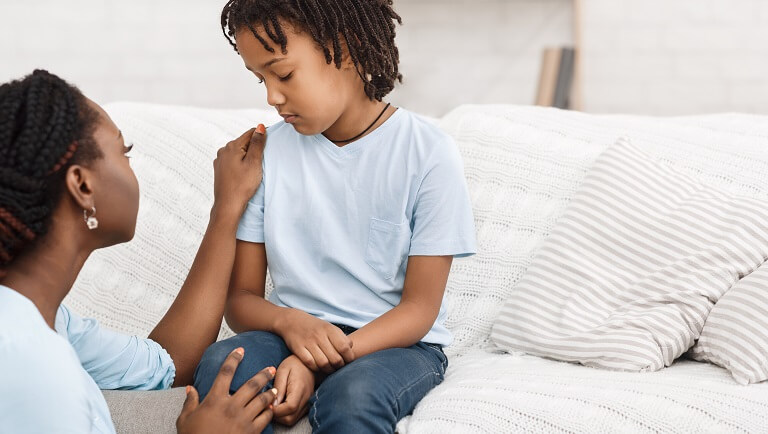
Also, to stimulate empathy formation in your child, you need to show your emotions openly and name them. By showing them, you teach a child that he should not be afraid of his emotions and does not need to hide them. By naming the emotion, you help your kid understand what he feels and call it.
Provide a positive and nurturing atmosphere at home
Another important thing is the emotional support of family members, which forms a sense of psychological comfort and security. Unfortunately, many families do not fulfill such an important function. Often children and parents are not connected by a common hobby. Parents rarely discuss their children’s problems or share their feelings, even among themselves.
The lack of emotional contact with parents, their emotional acceptance, and empathic understanding severely traumatizes the child’s psyche. It hurts children’s intellectual and general development and the formation of the child’s personality.
Difficult kids are the result of family traumas: conflicts in the family, lack of parental love, inconsistent parenting. The child needs to grow and blossom in an atmosphere of benevolence and kindness. Upbringing should be nurturing and make a child feel elated. He needs to feel your recognition, your fondness, sympathy. You can show it by smile, admiration, and saying encouraging word to your child. Positive parenting makes children feel secure and safe. And when you feel secure, you are more prone to express interest in the needs of others.
Search for emotions behind a kid’s story
Try to be more attentive to your child’s emotions. Tune in to his emotional frequency. The next time he talks, do not only listen to the story and ask logical questions but try to figure out what emotions and feelings are hiding behind his words. Sharing of one’s feelings is one of the main points of people interaction — we want others to understand how we feel in a certain situation.
If you manage to recognize and appeal to these emotions, you can create a strong emotional intimacy with your kid mainly because he may not understand what he is feeling. Children do not usually have a high level of self-awareness. They tend to search for the problem on the outside, especially if it is something negative like embarrassment, anger, hate, or disappointment. It is important not to get your own emotions involved in this process — you should only focus on what your kid is feeling.
Keep asking questions to urge him to talk more about his feelings so that you and your kid realize what he feels. Even if it does not go so well, at least your kid will know that his feelings are important to you. The idea is to identify the emotion, connect it to the situation, and name it clearly. With practice, it will get better.
Do not use shaming and blaming
Many parents unconsciously use shame as a method of raising a child’s socially acceptable behavior. From the outside, it seems like a successful method. But shame is a very strong negative feeling that makes a child’s immature psyche obey. While in the background, there is fear, resentment, hatred, and self-rejection.
Shame does not help to learn valuable lessons from the situation. It makes a child feel afraid of parental anger, being rejected, or unwanted. It is even worse if the child is shamed in public. For many, such memories remain traumatic even in adulthood.
Shame is a dead-end feeling, and it does not offer the way out except for hiding feeling miserable. Guilt, on the other hand, is a constructive and stimulating feeling. It has to do with the acceptance of responsibility for your actions. It only concerns the acts and does not touch the child’s personality. And what is most important is that it gives you plenty of options to solve the problem, for example, by apologizing and offering help.
7 tips how to develop empathy in your child
How can you help a kid learn emotional self-regulation and empathy? Here are some simple techniques to help give children an “empathic advantage”.
1. Make a dictionary of emotions
Get a notebook and invite your kid to write down his emotions and feelings in it. He does not need to give them “grown-up” names, just what he feels. Later you can come up with names and categorize them together. By the way, psychologists say there are from 200 to 500 emotional states, while most of us can not name more than two dozen. As the vocabulary grows, your child will understand the diversity of human emotions and be able to use them in interactions with others.
2. Analyze conflicts and situations together
Make it a habit to sort out all situations and especially conflicts at the level of emotions with your child. Ask him about his day: what happened today, what did he like about this day and what did not, what would he do differently. If he had a conflict with someone, ask him how he felt about it. Then ask him how he thinks his friend felt.
You may also be interested in how to teach your child conflicts resolution skills.
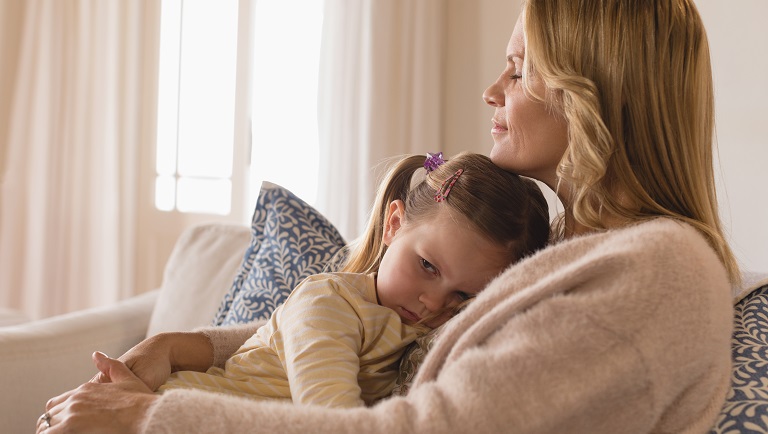
When you walk on the streets together, try to guess what bypassers feel, which mood they are in by the expressions of their faces and their gait. Use your imagination, and you’ll see how much fun this activity can be.
3. Practice role-play
The most simple manifestation of empathy is when you put yourself in the other’s shoes. Ask your kid to make a list of people he would like to reincarnate in for some time. These can be both well-known people and those from the inner circle. For example, invite the child to imagine himself in the role of the girl who lives next door. Or better someone he does not like or quarreled with. Then ask him to answer a series of questions on behalf of his character. For example: what is your name, how old are you, what are your hobbies, what do you like most of all, what makes you sad and so on. Later you can discuss the answers with your child.
4. Expand the circle of friendships
According to Martin Hoffman, who is the leading authority in the development of empathy and morality, we are more likely to empathize with people in our circle or who look like us. This widens the empathic gap.
Show your children the diversity of our world. If there are people in your neighborhood with a distinct cultural background or of a different race, try getting to know them better. Inspire your kids to expand their circle of communication and learn about their culture.
5. Show them the real world
Openly talk about stereotypes and how they influence our society. Use the stories from television or books to discuss people’s hardships and how they may affect the way people feel and act. It is important to transmit to a child that the world is not always fair to everybody, but each of us can make it a little better by lending a helping hand. Remind that even a simple act like comforting a classmate who was bullied is big in the universe of that exact person.
6. Make helping others a regular habit
At a certain point, any child has to face the fact that he is not the center of the universe. Teach him that sometimes he needs to sacrifice his desires and pleasures for caring for others. If it is time for the housework, ask your kid to help you even if he is playing video games and seems busy. Remind him to be polite even when he is moody and does not feel like talking.
7. Teach children to take care of animals and plants
If you have a pet, invite your kid to take care of it. It is a constant job for children and meaningful daily responsibility. Growing flowers and plants with your kid opens up the opportunity to show him the link between the cause and the effect. If you water the flower, it blossoms; otherwise, it wilts. The same goes for the relationships: if you don’t “water” your friendships and connections with kindness, they will wilt too. If you are interested in how to raise a responsible child you may find more tips in our article.
Empathy is a crucial life skill for a child that underpins his the intellectual development, social adjustment, and spiritual qualities. An adult person can also master the ability to feel others. Still, at a young age, empathy is easier to learn.

new engaging articles


